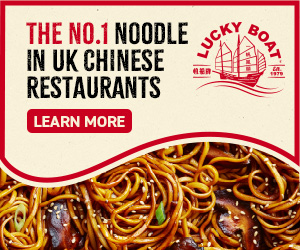Government bailout slammed as 'too little too late'

Yesterday (21 December), chancellor Rishi Sunak announced a £1bn bailout package for the leisure and hospitality sectors, which have suffered a monumental slump in bookings and sales amid rising cases of the Covid Omicron variant.
However, the reaction to the government's pledge to provide grants of up to £6,000 per premises has been mixed, with one leading operator slating the announcement as "too little too late".
Martin Williams, founder of Gaucho and M Restaurants, says in response to the government bailout: "The support is too little too late and will only act as a sticking plaster on major challenges for the sector. The return of SSPR is welcome but must be extended to all businesses to avoid mass layoffs.
"What small and large businesses alike need right now is a 2022 strategy which sees the extension of 75% Business Rates Relief and the introduction of a permanent 12.5% VAT rate. These two levers have been effective in supporting the hospitality sector throughout 2021 and will be paramount in the continued survival of hospitality."
'Wholly and shockingly inadequate'
Des Gunewardena, CEO of D&D London, called the £6k per site funding "wholly and shockingly inadequate", noting that many of the Group's larger central London venues – including Quaglino's, 100 Wardour Street and Coq d'Argent – each lost £100,000 in revenue from cancellations last week, with many seeing similar results in the week preceding Christmas.
"So, each of those businesses is facing a £200k loss and have been offered £6k," says Gunewardena. "[That] doesn't even cover the cost of our Christmas decorations. The government continues through its policies of flat grants per site to crudely discriminate against the owners and staff of larger restaurants. Quaglino's employs 100+ staff and gets £6k. If those same 100 staff were employed by 10 smaller restaurants, we'd get £60k. Why?"
Gunewardena emphasises that hospitality businesses in France and the US have been fully financially supported throughout multiple lockdowns, and while the financial support directed at the sector is of course welcome news, it pales in comparison to what other countries have offered to struggling firms.
"It is central London that is in the eye of the Omicron storm," he adds. "Last week, the city lost 60% of revenues, the West End 30%.
"It is true that many hospitality companies with the benefit of government support are now in pretty good shape. But that is not the case for businesses like ours which are predominantly in the centre of big cities and in particular in central London," Gunewardena exclaims.
'Short-term plaster on big wounds'
Stacey Sherwood-French, co-owner and director of the restaurant JÖRO, agrees, stating that many hospitality companies will be "heading into January with uncertainty and empty bank accounts."
"It's clear that the suppport package recognises the hospitality industry and any assistance is welcomed and appreciated," says the director. "However, for a lot of companies there have been significant losses across the board from December trade, [meaning they are] heading into January with uncertainty and empty bank accounts – the industry needs to see extended long-term assistance. This is a short-term plaster on big wounds.
"Further reduced VAT as well as loan repayments' extended timescales are required, along with a reduction in business rates well into 2022," adds Sherwood-French. "Any further restrictions placed upon the industry also need to be supported further to [yesterday's] announcement."















